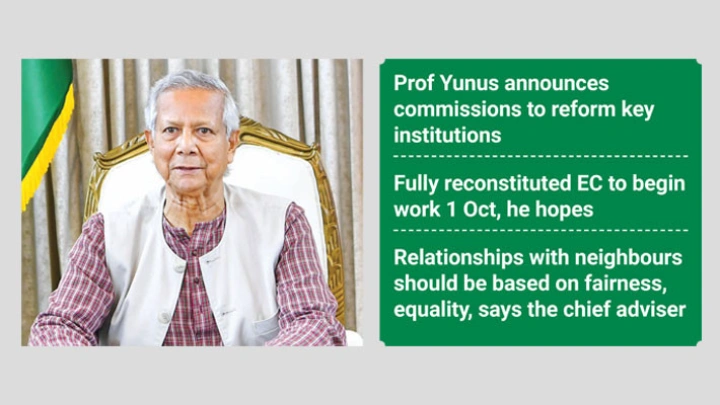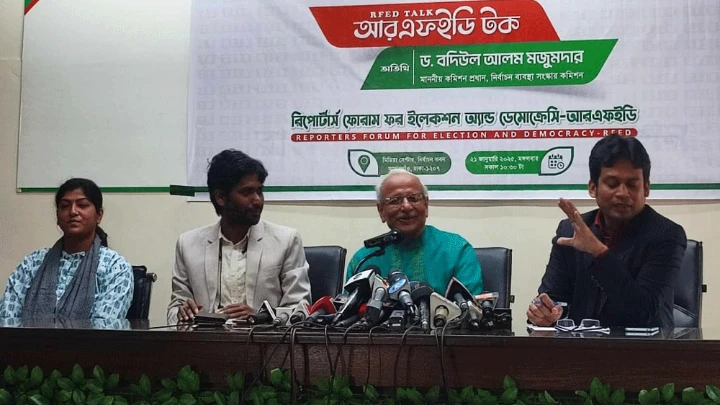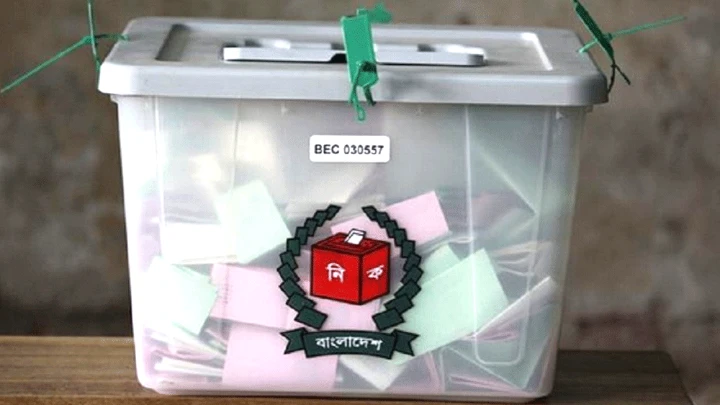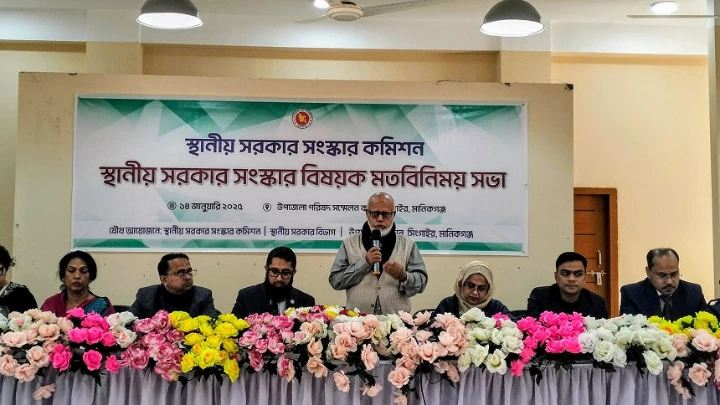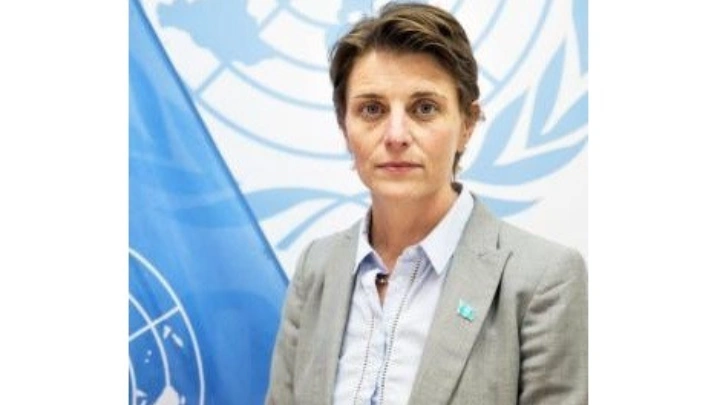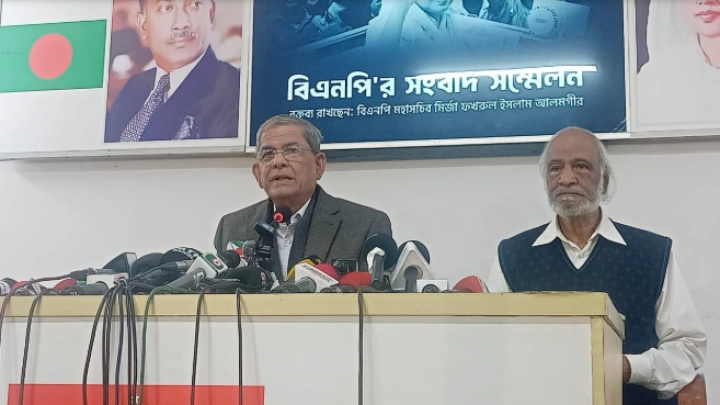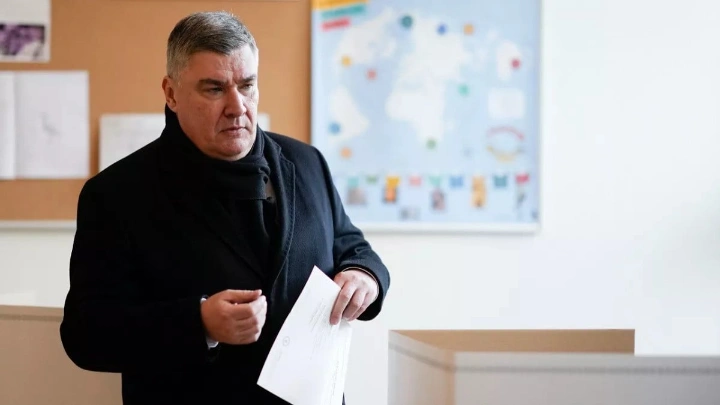Improvement in electoral system draws importance in reform ideas
UNB || Shining BD
Highlighting the importance of improving the electoral system, Chief Adviser Prof Muhammad Yunus on Wednesday announced the formation of six commissions to reform as many key sectors.
“After this, we will continue the process of formation of commissions on various other issues,” he said in a televised speech marking the first month of the interim government which was formed on August 8.
The chief adviser said Dr Badiul Alam Majumdar will be the head of the Electoral System Reform Commission, Sarfraz Chowdhury Police Administration Reform Commission, Justice Shah Abu Naeem Mominur Rahman Judiciary Reform Commission, TIB’s Dr Iftekharuzzaman Anti-Corruption Reform Commission, Abdul Mueed Chowdhury Public Administration Reform Commission and Dr Shahdeen Malik will head of the Constitution Reform Commission.
The names of the other members of these commissions will be decided in consultation with the heads of the respective commissions, Prof Yunus said.
“As we believe in people’s right to vote and people’s ownership, the improvement in the electoral system has been given importance in our reform ideas,” he said.
He said reforming four institutions - police administration, public administration, judiciary and the ACC - is essential for free and fair elections as these institutions are related to the electoral system.
“I believe that the reform of these institutions will also contribute to the establishment of a state system with public ownership, accountability and welfare.
In addition, Prof Yunus said, they feel the need for constitutional reforms to ensure the representation and interests of people from all walks of life and to reflect the message of the July mass uprising.
He said the Election Commission, once fully constituted, is expected to formally begin its work on October 1 and they expect it to be completed within the next three months.
“Based on the commission’s report, the government will hold consultations with major political parties at the next stage,” the chief adviser said, adding that at the final stage, the outline of reform ideas will be finalised on the basis of a three-to-seven-day long consultation meeting with students, civil society, and representatives of political parties and the government.
“It will also give an idea of how this outline will be implemented,” he said.
Advisory council members, students, workers, representatives of mass movements, representatives of civil society and political parties will be present in the deliberations and consultation meetings of the commissions.
“We believe that this will make the whole nation strong and optimistic in the implementation of the message of the July mass uprising and uniting all to rebuild the state,” Prof Yunus said.
He said they have a lot of work ahead of them and they all want to move towards the same goal. “We all want to ensure equal rights to every member of our family, be he/she sweeper, student, teacher or from any religion. This is the main goal of our reforms. Let us quickly implement the goal of this revolution of students, workers and people.”
The chief adviser said in their first month, they may not have been able to move forward with the speed and enthusiasm that they had in view of the actual situation.
“If the law-and-order situation of the country is kept normal, we hope we can boost our speed a lot. For this reason, I am asking for the cooperation of all the people of the country - teachers, students, farmers, workers, professionals, big businesspeople, small businesspeople, day labourers and housewives,” he said.
He said their work is tough, but as a nation, they cannot afford to fail this time. “We must succeed. This success will come because of you and it will come because of your cooperation. Our job will be to make your and my dreams come true.”
Prof Yunus said they are starting the second month. “In our second month, I will try to create strong confidence in your mind.”
“Be patient, I will not tell you this at all. We all get impatient thinking about when so much work will be completed. We will be impatient. Why not? But it will work properly. I will show no sign of impatience in work,” he said.
RMG, pharma industries to be taken to the peak of their potential
Acknowledging the pains of workers, Prof Yunus said the government wants to take the pharmaceutical and garment industries to their potential peak and there is no question of weakening these two key industries.
“The pharmaceutical and garment industries are the pride of the country. Through this, our workers’ brothers and sisters and their efficiency have impressed the world. Its success has now been hindered. We want to remove the obstacles by identifying the problems of these two industries,” he said.
Prof Yunus said they will gather foreign buyers and seek their cooperation so that these two industries of Bangladesh can become more reliable than other countries in the world.
“Everything is possible if we can make the labour-owner relationship a reliable and enjoyable one,” he said.
The chief adviser said the first month of the government has passed and from the second month they want to start a new labour-owner relationship as part of building a new Bangladesh. “It is desired by everyone in the country. We are working towards that goal so that the new generation of the country can move forward with their future without fear,” he said.
The Nobel laureate said they have many responsibilities. “We have to work together on a number of issues to build a just society,” he said.
Relationships with neighbours should be based on fairness, equality
The chief adviser reiterated that they want good relations with India and other neighbouring countries. But, he said, that relationship should be based on fairness and equality.
“With India, we have already started discussions on high-level bilateral cooperation in dealing with floods,” he said.
Prof Yunus said he has taken the initiative to revive the SAARC grouping of nations with a view to enhancing regional cooperation in South Asia.
Prime Minister of India Narendra Modi and Prime Minister of Pakistan Shehbaz Sharif are among the heads of government that have had telephone conversations with him, he Yunus said.
After assuming office, Prof Yunus said, the heads of government of various countries congratulated him over the telephone and sent greetings.
Ambassadors and high commissioners stationed in Dhaka met him and assured him of strengthening bilateral cooperation.
“At my request, the government of the United Arab Emirates announced amnesty to 57 Bangladeshis who were sentenced to various terms of imprisonment for participating in anti-fascist protests,” Prof Yunus said.
Some of them have already returned to the country. “It’s very rare.”
Prof Yunus said they want the country to be known with respect to the world as a democratic country.
He ended her speech by sending his greetings to everyone - people of the country, children, teenagers, young people, students, old people, men and women.
Shining BD

